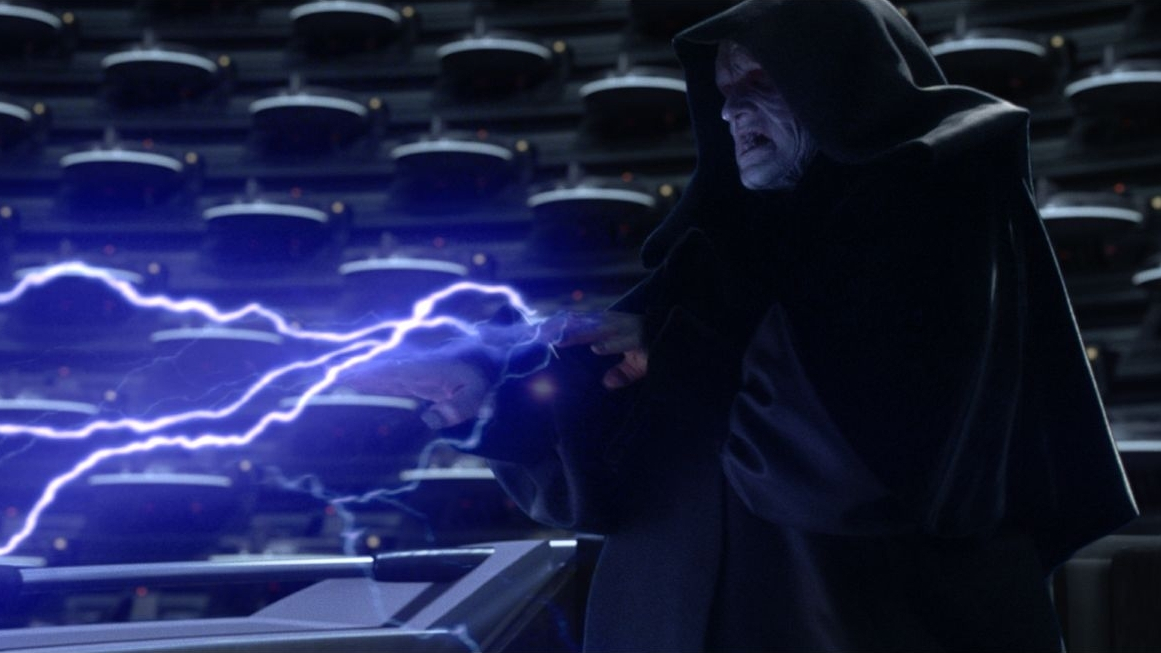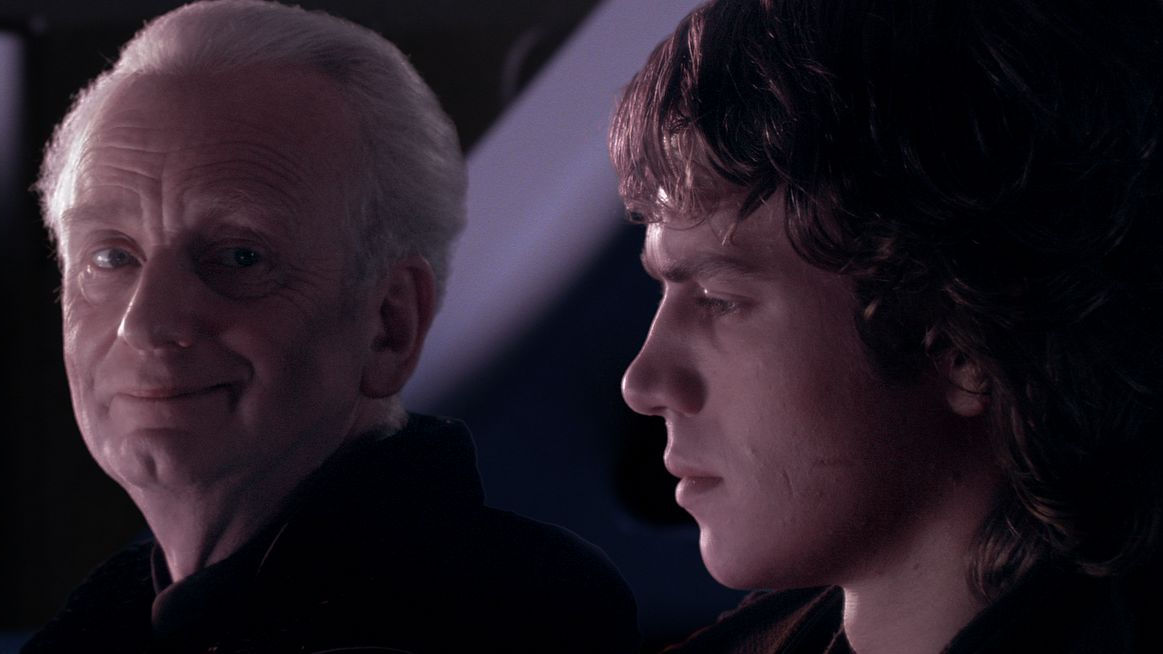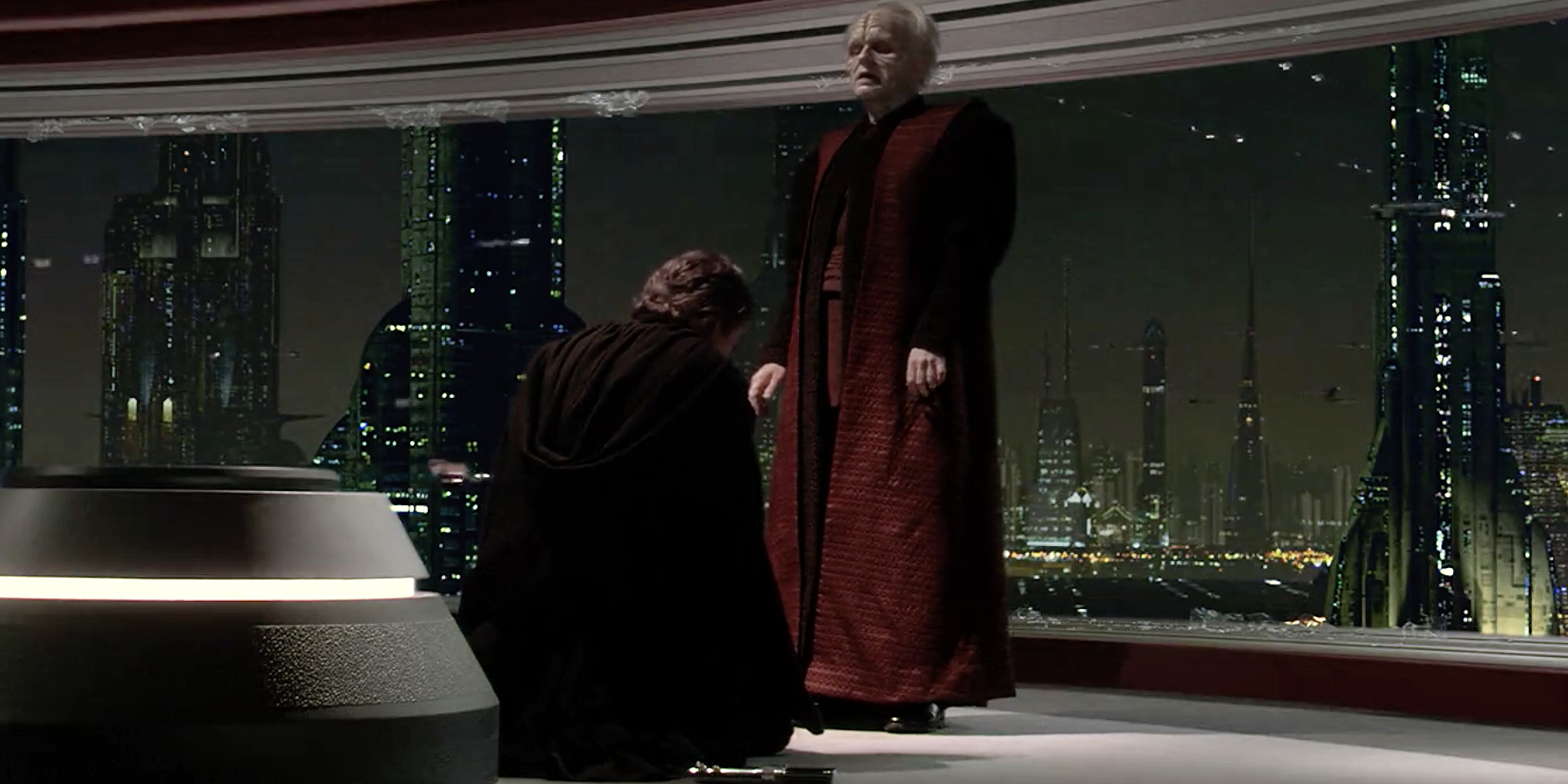Star Wars should have focused on the Sith ages ago
Disney plans to tell a Star Wars story from the side of the villains. Finally!

In April this year the first footage of the upcoming Disney+ series The Acolyte was shown at the Star Wars Celebration 2023 in London. It has generated much interest among fans, with its tantalizing premise. Set around a century before the events of Star Wars: Episode 1 – The Phantom Menace, The Acolyte will take place during the end of the High Republic era, when the Jedi were at their most powerful and numerous.
Perhaps most intriguing of all is that The Acolyte, which will debut on Disney's streamer in 2024, intends to tell a story from the point of view of the villains, meaning the Sith. "This isn’t about good or bad," a character said, in the footage that was shown. "It’s about who’s allowed to use it." While the Jedi have long dominated the main story, it really is about time their primary antagonists took center stage. After all, let’s get real, they’re just more interesting.
All through the Star Wars prequel trilogy – from Episode I: The Phantom Menace onwards – the audience watches the Jedi Council grow increasingly uneasy and concerned. They sense the Republic’s values, as a peaceful democracy, are under threat. Corruption and cronyism are rife, with the Trade Federation a powerful force difficult to pin down, when an individual trained in the Jedi arts, wielding a red lightsaber, shows up.
It sends a shockwave through the Council and it becomes evident that disbelief and denial, that the Sith have returned, is strong even among Masters as wise and in tune with The Force as the Council members. Once the credits for Episode III: Revenge of the Sith roll it’s clear how complacent and slow the Jedi had become. Trusting too much in the status quo, they were hesitant and reluctant to act, until it was too late, while their great enemy acted in plain sight and under their noses.
They were simply too dim-witted for the extremely clever and subtle manipulations of Palpatine, with only the astute Obi-Wan seeming to sense something awry with the Senator-turned-Chancellor. But the grand scheme was not all Palpatine’s doing. Someone else had laid the groundwork for him, someone who was also extremely clever and subtle, but who lacked the charm and diplomacy skills of the senator from Naboo.
In Revenge of the Sith, we hear Palpatine spin “the tragedy of Darth Plagueis the Wise” as he seduces Anakin, knowing how emotional and sensitive the young Jedi is, as we learn Darth Plagueis was able to create life and save others from death. But it’s only a brief yarn, intended to show Anakin being manipulated and how the Chancellor (aka Sith lord Darth Sidious) deftly preys on the Jedi’s fears of losing his most loved ones. But for those who want to gain greater insight into Palpatine’s upbringing and his roots; the mysterious Plagueis, as well as the mindset and beliefs of the Sith, then there is the excellent novel ‘Darth Plagueis’ written by James Luceno.
I maintain that Star Wars fans should feel under no obligation to read the novels and comics to keep up. The series started as movies and have expanded into TV series, so if that’s only what you have time for then that’s absolutely fine. But for those intrigued by the lore of this galaxy that George Lucas invented, and which has subsequently been expanded, then modified under Disney’s ownership, and by its cast of characters, the novels and comics offer deeper interest, especially for those building headcanon.
Breaking space news, the latest updates on rocket launches, skywatching events and more!
In Darth Plagueis, Luceno uses a close third-person narrative style, following the thoughts and machinations of Plagueis, who goes by Hego Damask as a citizen of the Galactic Republic. Although mostly written from Plagueis’ perspective, the narrative does shift to Palpatine, and even briefly to Darth Maul, as the book progresses. Aside from this, we learn of Plagueis’ Sith master, more about Sith history and lore, such as the pivotal Darth Bane, and the commercial and mercantile nature of Star Wars’ universe. But more than that, it is a superb study of the psychology and malevolence of the Jedi’s great enemy.
Darth Plagueis holds certain advantages. As Damask, he is CEO of an influential yet clandestine financial group known as Damask Holdings, which is allied with the important InterGalactic Banking Clan. Plagueis wields considerable power and influence, then, in his civilian guise, but the Sith lord prefers to operate in the shadows. Following Darth Bane’s Rule of Two, Plagueis meets a young Palpatine on a visit to Naboo. The youngster isn’t so extraordinary upon first meeting, but the Sith lord quickly realises the latent potential and takes him as an apprentice. Palpatine has a charming exterior—a human with impeccable manners, as befitting his aristocratic heritage, and a trusting everyman appeal. But underneath Plagueis understands (although not sufficiently it’ll transpire) is an interior of utter ruthlessness and will to dominate.
Plagueis is the Marlon Brando of Sith lords, the original Godfather who’s scheming, Machiavellian and astute. But it takes the credibility and political acumen of Palpatine, the Al Pacino in my flawed analogy, to fulfil the Sith’s Grand Plan to overthrow the Jedi and rule the galaxy. What is brilliant about Luceno’s novel is the persuasiveness of the Sith ideology as it’s presented, with Plageuis’ clarity and resolve offering a seductive counterpoint to the Jedi’s po-faced nobility, even as the Sith commits terrible deeds.
Indeed, the Sith have an element of manifest destiny to them, a belief so grand and self-assured, it’s difficult not to feel an attraction to it. “The greater goal of the Sith involved toppling the Force itself, and becoming the embodiment of the galaxy’s animating principle”, we learn from Luceno’s book. Elsewhere, the two Sith, Plagueis and Sidious, even cast themselves as moral superiors, chosen to prick the Jedi’s arrogance. “Do you see the grand error of their ways?” Plagueis asks his apprentice, rhetorically. “They execute the Republic’s business as if it were the business of the Force! But has a political body ever succeeded in being the arbiter of what is right and just? How easy it is for them to bask in self-assurance in their castle on Coruscant.”
But that is the danger of any fascist ideology, which believes a select few (and even one individual) is utterly justified in its decisions and thinking. The clarity of such beliefs can be seductive, especially when the world seems in such disarray and politicians can seem so ineffective. But ultimately such a force inevitably leads to oppression and the loss of freedoms.
There’s always been an obviousness to the nature of Star Wars’ moral universe, with the Sith being basically an inevitability under the binary nature of The Force: the Dark Side to the Jedi’s Light. But the franchise is more interesting when it subverts this dualistic simplicity, in characters such as Anakin Skywalker/Darth Vader, who redeems his darkness, and turncoats and rogues like Count Dooku and Qui-Gon Jinn, respectively, who don’t adhere to the rigidity of the Jedi Council. Sadly, these characters only get brief look-ins in the movies (I’ve written before that even Anakin doesn’t get the character study he deserves), which is a real shame, but they take on more significance in the novels.
Viewing the Star Wars universe from the eyes of the Sith is refreshing, especially when the Jedi can seem so self-important and stiff. Like other compelling villains (Killmonger, Thanos) a good antagonist can be a major attraction to audiences, and it’s a shame that Lucasfilm/Disney have left it this late to adapt to screen a Sith-focused story. Hopefully, The Acolyte will not shy away from depicting the allure and appeal of the dark side, demonstrating how easily darkness can pervade.
Lu-Hai Liang is a British Chinese writer and reporter. He has a degree in multimedia journalism and has written about culture for The Atlantic, BBC, CNN, Eurogamer, IGN, and Wired among others. He was based previously in Beijing for six years and reported on China’s changing society and development in business and technology. Generally, he likes sci-fi, video games, and space.



